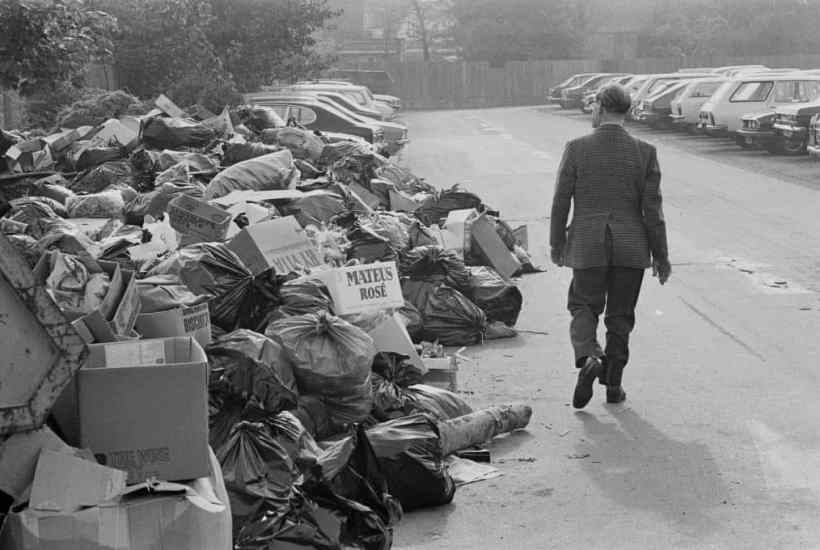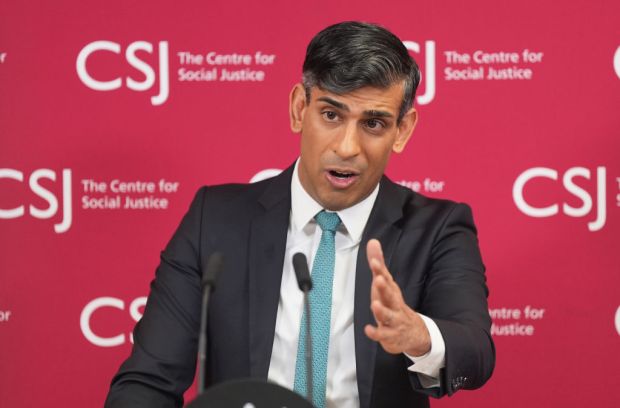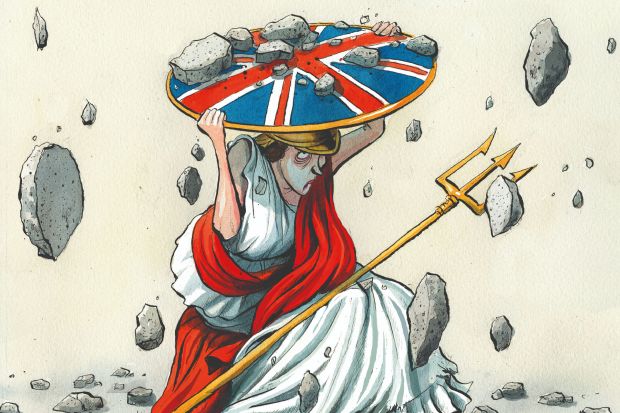With workers across the economy looking set to go on strike during the next few months there is talk of a ‘summer of discontent’. The inspiration for this trope is the infamous 1978-9 ‘winter of discontent’, when despite the urgings of Labour ministers to show pay restraint, poorly paid public sector workers left rubbish piling up in the streets and, legend has it, the dead unburied. When the strikers returned to work the government’s effort to keep wages down was in tatters, along with its perceived authority to govern.
There have been many mooted summers of discontent over the years, but none has ever rivalled the original. They have all – appropriately enough given the vagaries of the British weather – ended up as damp squibs. Maybe this one will be different. Britons are now experiencing unprecedented price inflation, which comes on top of a consistent squeeze on their living standards due to the impact of the 2008 financial crisis which then got worse thanks to Covid, which has in turn left employees more alienated and discontented than ever. After a decades-long period of apparent industrial quietude it looks like many workers are finally not going to take it anymore.
The impending rail strike at the end of the June is set to kick off the summer of discontent and is likely to shut down the network for three days. It is significantly a purely defensive dispute in a sector which, like so many others, has seen pay squeezed and working conditions deteriorate: the union’s main demand is for a wage increase that meets the recent rise in inflation.
Despite this, Conservatives are sticking to the well-worn Thatcherite approach which sees in every strike the chance to tell voters that Labour is in hock to irresponsible and powerful ‘union barons’ whose interests they would always put before those of the country. At the latest PMQs the Prime Minister therefore described it as a ‘reckless and wanton strike’ and demanded Keir Starmer condemn it. The Conservative party chair Oliver Dowden reinforced that message saying Labour would always ‘back hardline unions over hard pressed travellers’.
Yet, this rhetoric has long been at variance with reality thanks to Thatcher’s own changes to industrial relations law and the demise of heavily unionised industries. In 1979 just over half of workers were members of a trade union: today it is less than one quarter. Public revulsion at the ease with which P&O sacked its employees and replaced them showed that the days when many thought union leaders had more power than the prime minister are long gone. Indeed, a plurality of Britons have for some time seen unions as playing a positive role in Britain today.
Despite Johnson’s urgings Starmer’s position is to neither support nor condemn the rail strike. His spokesperson is saying that ‘Nobody wants to see industrial action that is disruptive.’ That is the usual position for a Labour leader in Opposition – apart from Jeremy Corbyn who saw in each and every dispute a hammer blow against capitalism. Even ‘Red Ed’ Milband was afraid of alienating voters by supporting striking unions. Even so, despite Starmer’s caution, others in his shadow cabinet have expressed some qualified support for the union’s case. Most significantly, Wes Streeting, widely seen as the most right-wing member of Starmer’s front bench, said that if he was a rail worker he would have voted for a strike.
Streeting’s comments might merely suggest his has ambitions to become the next Labour leader and is giving a wink to the party’s union wing. But they could indicate a more profound shift in politics, one in which Labour is less afraid to be seen as being the workers’ friend.
As an insightful and timely new book by Phil Tinline shows, one of the fears that fuelled Thatcherism was that of unbounded trade union power, a fear seemingly exemplified by the winter of discontent. The public sector strikes of 1978-9 certainly revealed Labour’s incapacity to govern. It was widely regarded as indicating the collapse of the post-war consensus and the need for another – and it delivered the May 1979 election to Margaret Thatcher. Whether the mooted ‘summer of discontent’ plays a similar role in seeing off not just Boris Johnson’s beleaguered premiership but also the end of the Thatcher consensus which cast unions as the ‘enemy within’ only time will tell. History never quite repeats itself. But in calling for wage restraint and so for workers to take yet another real cut in pay, Boris Johnson is certainly doing a good job auditioning for the part of Labour prime Minister James Callaghan who made a similar plea as autumn turned to winter in 1978. This plea fell on profoundly and, for him fatally, deaf ears.
Got something to add? Join the discussion and comment below.
Get 10 issues for just $10
Subscribe to The Spectator Australia today for the next 10 magazine issues, plus full online access, for just $10.




















Comments
Don't miss out
Join the conversation with other Spectator Australia readers. Subscribe to leave a comment.
SUBSCRIBEAlready a subscriber? Log in